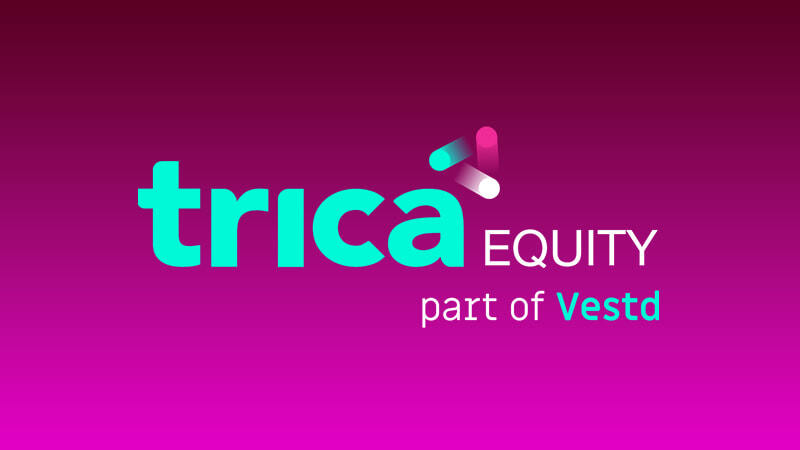Vestd celebrates tenth anniversary with entrance into Indian market
[UK,20 February 2025] - Vestd, the UK-based sharetech platform, has united with Trica, one of India’s leading startups, to bring its innovative...
Manage your equity and shareholders
Share schemes & options
Fundraising
Equity management
Start a business
Company valuations
Launch funds, evalute deals & invest
Special Purpose Vehicles (SPV)
Manage your portfolio
Model future scenarios
Powerful tools and five-star support
Employee share schemes
Predictable pricing and no hidden charges
For startups
For scaleups & SMEs
For larger companies
Ideas, insight and tools to help you grow
9 min read
 Jemma King
:
11 November 2024
Jemma King
:
11 November 2024

It’s no secret that building a successful startup is tough. In the first year alone up to 90% of startups fail, while a staggering 70% of new businesses cease operations between years two and five.
The most common reason? Running out of cash or failing to secure new funding accounted for 38% of startup failures, followed closely by a lack of market demand.
As we approach the end of 2024, we have seen the global investment landscape shift dramatically. Funding activity has experienced notable turbulence, leaving startups and businesses around the world grappling with fewer funding rounds as investor confidence has dipped.
Broader economic factors are playing a huge role in this funding cooldown, with many markets, including the UK, battling ongoing supply chain disruptions, surging inflation, and rising geopolitical tension.
Together, these factors continue to shape market expectations and influence investment decisions, leading to a far more selective funding environment.
However, while more traditional industries have experienced a contraction in capital inflow, sectors like artificial intelligence (AI) and green or sustainable technology have seen a remarkable rise as companies place a growing emphasis on operational efficiency and long-term sustainability.
To assess the scale of global investment in 2024 and how it has changed throughout the year, our team analysed Crunchbase data to reveal private equity trends across a range of regions and industries.
We looked at the total number of funding rounds across countries, and analysed how the UK compared to its key competitors, including the U.S., India, and the EU, when it comes to investment in startups. In total, 26 regions were analysed across six continents.
Our data highlights a sharp downturn in global funding activity for 2024 when compared to 2023, reflecting a broader contraction in funding. Increasingly cautious and selective, investors are reacting to market uncertainties leading to diminished confidence and investment across regions.
Between quarter one (Q1) to quarter three (Q3) of 2024, the total number of funding rounds globally reached 36,203, a 25.9% decrease compared to the 48,881 rounds recorded in the same period last year.
Despite the overall decline, Q1 had the strongest performance so far, with 13,029 funding rounds driven by early-year optimism.
Across the continents, North America leads with 18,020 funding rounds this year to date - just over half the global total - demonstrating the region’s continued dominance in private equity investment.
Europe, though second in terms of activity, saw a notable decline of 28.7% with 7,548 rounds in 2024 compared to the 10,591 recorded in the same period in 2023. With the drop in investment, Asia now follows closely behind, with 7,302 in total for Q1-Q3.
Elsewhere, Africa, South America, and Australia have also seen a decline in activity.

According to the Government, the UK startup ecosystem is estimated to be worth nearly £800 million, marking the UK as the third most valuable in the world - ranking third globally for venture capital, and first in Europe for tech.
After the Labour Government’s first International Investment Summit held in October 2024, a reported £63 billion of private investment has been committed, more than double the total amount secured at the 2023 Global Investment Summit.
These investments, spanning partnerships across the infrastructure and tech sectors, align with the Government’s goal of driving economic growth and bolstering investor confidence.
In the first half of 2024, data revealed that a record number of UK companies were launched with 468,000 new firms, bringing the total number of companies operating in the UK to 5.47 million.
Despite this, our latest research revealed that investment in early-stage businesses has dipped. Funding rounds were down by over 28%, with 2,369 total funding rounds for the year to date compared to the 3,314 recorded last year.
While across the UK Q1 of 2024 saw a promising start with 901 total funding rounds, this had since declined by 26.3% by the end of Q3.
Historically, funding has been concentrated in London, and 2024 was no exception. The Capital had the strongest performance across the UK despite observing a 30.4% decline compared to the previous year.
London had a total of 1,230 funding rounds that occurred between Q1 and Q3 of this year, with 474 funding rounds in Q1 alone, although activity slowed in the following quarters.
Manchester ranked second, with 72 funding rounds in total. However, the city observed the smallest decline year-on-year with a 6.5% dip, nearly matching its performance from the previous year.
Elsewhere, Edinburgh, Bristol, and Glasgow rounded out the top five, with 65, 50, and 45 funding rounds respectively, in the year to date. Liverpool, on the other hand, had a 70.6% rise in funding rounds, far outpacing its 2023 total funding activity by the end of Q3 2024.
Sheffield closed out the top 10 with 17 funding rounds in total. While it had a strong performance in Q1, it had observed a 42% decline in funding activity by the end of Q3.
However, with only 27 funding rounds in total for 2023, the city could still be on track to surpass this by the end of quarter four (Q4).

While traditionally not seen as major investment hubs, these cities are beginning to capture a larger share of the overall funding pool, which may suggest a growing pattern of diversification in investment across the UK.
As the investment landscape develops, regions with emerging innovation clusters particularly in sectors like tech and sustainable technologies, may become increasingly attractive to investors.
This is particularly visible in Liverpool, which has undergone major redevelopment in recent years to increase its business viability - including the more recent launch of the Liverpool City Region Life Sciences which will pave the way for up to £800 million of public and private investment, creating new hi-tech facilities and expanding AI investment.
After London, Cambridgeshire was the region with the highest funding activity, with 85 funding rounds in total.
While the region had a 21.3% dip year-on-year, it also had a 28% spike in quarter two (Q2) compared to Q1, with Q3 also outperforming Q1 - which may signal an upward trend going into Q4.
Oxfordshire rounded out the top three, with 72 funding rounds in total and a 27.3% drop in total funding rounds. But that’s not to say it is all bleak news.
Among the regions showing the largest growth, Cumbria recorded an impressive 85.7% jump in funding rounds in 2024. The region also surpassed its total funding activity for the entirety of 2023, signalling strong growth in investment.
Essex also showed a positive trend, with a 13% year-on-year increase in funding activity between Q1 and Q3, and may indicate the region could surpass its total 2023 funding activity by the end of this year.
Other regions, including Hampshire and Surrey, have similarly experienced spikes in total funding rounds in 2024, signalling an upward trend when compared to the same period in 2023.

Despite an overall decline in early-stage funding categories, the growth in private equity, post-IPO financing, and debt-based funding suggests a strategic shift in the UK’s investment market.
There is a growing preference for later-stage funding types, with private equity rising by 13.5%, post-IPO debt up by 12.5%, and post-IPO equity climbing by 9.6%.
This aligns with the overall trend that investors are becoming more selective, favouring established businesses that present lower risk and more immediate growth potential.
This trend benefits both investors, who are seeking more secure returns, and companies that are well-positioned to scale rapidly with some capital infusion.
While the growth in later-stage funding is encouraging, the data showed a contraction in early-stage funding rounds, including seed funding which was down by 31.1%, and pre-seed funding down by 35.5%.
The sharp drop of 49.2% in grant funding could also reflect a reduction in government or institutional funding support after grant spending from 2022 to 2023 decreased by 10% compared to the previous year.
A decline in early-stage funding should not be interpreted as a lack of opportunity. Instead, it indicates that early-stage startups need to smartly demonstrate their market fit and scalability to investors to secure vital funding.

Interestingly, our research also revealed a 300% spike in Initial Coin Offerings (ICOs), reflecting a renewed interest in blockchain and crypto-related projects.
While this remains a niche funding type, the surge in interest may allude to the increasing range of opportunities that are emerging in tech sectors.
Similarly, Series D and Series C rounds saw increases of 133.3% and 21.1% respectively, suggesting a healthy appetite for businesses that have progressed beyond the startup phase, and are now looking for capital to fuel innovation and expansion.
The ability of these companies to secure larger funding rounds in later stages, especially in a challenging economic landscape, further suggests businesses have been successful in demonstrating their growth potential, therefore securing significant capital.

Globally, investment has shown significant variation across countries. However, despite a general decline in total funding rounds for 2024 thus far, several markets continue to lead ahead while some countries have seen some promising growth.


The U.S. continues to lead the global investment market, with the highest number of funding rounds compared to any other country, despite a similar drop of 28.9% compared to 2023. However, the market is not without its challenges.
Recent data indicates that approximately 3,200 private venture-backed U.S. tech companies have gone out of business this year, and since 2018, the tech startup industry has had the highest startup business failure rate at 63%.
Despite this, the U.S. remains the world’s leading tech hub, and continues to attract significant investment across industries like artificial intelligence, generative AI, and life sciences.
In recent news, OpenAI secured $6.6 billion in funding, while investors have poured a further $2.9 billion in Q3 into the latest U.S.-based AI startups.
Around 11.75% of global funding rounds were allocated to startups in the European Union in 2024, falling short of the 16.49% previously accounted for in the same period in 2023.
Reflecting the wider downward trend in global funding activity, investor caution remains prevalent after post-pandemic market adjustments, rising inflation, and ongoing geopolitical tensions.
However, recently the EU announced the ‘Trusted Investors Network', a new initiative to support growth in Europe’s deep tech sector.
Backed by the European Innovation Council (EIC) Fund, the network will consist of 71 investors working closely to provide funding to deep tech startups, including those in the blockchain sector. This comes after the EIC Fund has already invested nearly €1 billion in over 250 startups.
While India has also seen a contraction in funding activity, it experienced a less severe decline of 13% in funding rounds, compared to those seen in Europe and North America, with 1,782 funding rounds in total.
Long recognised as one of the fastest-growing economies in the world, rapid growth in venture capital investment since 2013 saw startup funding rounds hit a peak of 1,504 in 2022, a 1803% increase.
India’s burgeoning startup ecosystem has now made it a prime scene for innovation, technology, and growth opportunities.
Notably, our data showed India had a rise in funding rounds within the AI industry, with a 5.2% increase from 2019 to 2024, suggesting the country could become a key player in the global AI market.
In 2023, Statista revealed that for the first time, more than half of GDP would be driven by “digitally transformed” enterprises - underscoring the growing emphasis being placed on technology to drive economic growth and expand innovation.
Across all the industries analysed, the software industry had the highest number of funding rounds, with 11,265 in total for 2024, followed by science and engineering (8,947), and healthcare (6,551).

Globally, there was considerable activity in the SaaS investment market, with a total of 1679 funding rounds. The United States continues to lead this space, accounting for approximately 45% of total global funding, while the UK came second, with 115 funding rounds this year to date.
Elsewhere, India and Germany remain competitive, both securing 68 funding rounds, while Australia and Japan showed an increasing appetite for SaaS solutions, with Japan outpacing the total secured in 2023 by 51%.

Meanwhile, the AI investment market has seen a global increase in funding rounds since 2019, reflecting the wider trend in interest for AI technologies.
Total funding rounds reached 3,826, a slight decline from the 4,626 that were recorded in the same period in 2023.
Despite this, the sector continues to account for a significant share of investment, as generative AI experienced an 18% rise in investments in 2024, intelligent systems had a 22.4% jump in investment, and Robotic Process Automation (RPA) observed an 86.4% increase in funding rounds.
As the AI sector continues to advance and mature, it represents a significant opportunity for investors and startups amid the ongoing global drive to digital transformation.
While regions like India, Germany, and Canada emerge as formidable players, evolving market demands will no doubt see AI startups become increasingly relevant - and attractive.

Commenting on the findings, Ifty Nasir, CEO of Vestd, said:
“We are at a critical juncture in the global investment landscape. As funding struggles to regain momentum following broader market uncertainties, investors have become more selective, leading to many sectors observing a downward trend in funding, with early-stage funding hardest hit.
"As a direct response to these challenges, we have launched our new fully integrated platform InVestd Raise, to offer startups and scaleups a simpler and more accessible approach to navigating funding challenges.
“This shift in the investment market presents a unique opportunity for founders to refine their value propositions and become resilient in demonstrating their growth potential and market fit.
"Increasingly, Investors are focused on businesses that not only present a clear path to profitability but also align with key market drivers like operational efficiency and innovation.
"The ongoing surge in investment in sectors such as artificial intelligence represents the wider global trend towards digital transformation.
"With how competitive the funding landscape is, founders need tools that ease the process, allowing them to focus on wowing potential investors."
InVestd Raise offers everything a startup needs to help attract and manage fundraising.
"It can also help founders apply for SEIS/EIS advance assurance, issue shares, and auto-generate investment agreements, making it easier to attract private investors.
“We’ve spent the last decade creating a best-in-class equity management platform, and now we’re proud to offer a complete sharetech offering - helping founders to launch, raise investment, grow, mature and then cash in on their success, along with their teams!”
For startups aiming to succeed in this challenging environment, fully-integrated platforms like Vestd’s newly launched InVestd Raise, simplify the fundraising process and provide founders with clear guidance every step of the way.
Enabling founders to manage the whole fundraising process within the Vestd platform, the comprehensive package includes:
The platform will also enable founders to apply for SEIS/EIS advance assurance, issue shares, and auto-generate and sign investment agreements.
Find out more about InVestd Raise here.
To assess the scale of global investment in 2024 and how it has changed throughout the year, Vestd analysed Crunchbase data to reveal private equity trends across a range of regions and industries.
Vestd looked at the total number of funding rounds across countries, and analysed how the UK compared to its key competitors, including the U.S., India, and the EU, when it comes to investment in businesses. In total, 26 regions were analysed across six continents.
All data is correct as of October 2024.

[UK,20 February 2025] - Vestd, the UK-based sharetech platform, has united with Trica, one of India’s leading startups, to bring its innovative...

Starting a business is no small feat, yet the entrepreneurial spirit in the UK has never been stronger.

We know you’re chomping at the bit to get your business idea off the ground. But hold your horses. Have you thought about: